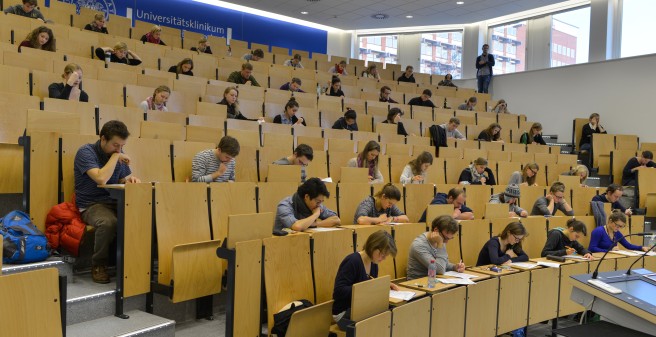Information for Medical Students
Knowledge and skills in medical psychology are basic competencies that are of high relevance for physicians, which are needed in all clinical areas of their training, and their professional work. All medical faculties in German universities provide education in medical psychology, as it has been recommended by the German Society for Medical Psychology ( www.dgmp-online.de ).
The medical faculty at the University Medical Center Hamburg-Eppendorf has gone even further by including medical psychology from the start to the end of the curriculum, thus intertwining basic and advanced clinical content. Since 2012, the medical faculty has implemented the “Integrative Model Curriculum for Medicine” (iMED), a future-oriented and progressive concept for medical education. Professors from all medical disciplines and their students have jointly developed a curriculum that integrates theoretical, basic disciplines with clinical practice. This concept is in accordance with the central recommendations of the Sciencific Advisory Board for Medical Training in Germany. Its aim is to systematically lead the students towards science-based medical practice. In addition to scientific training, the medical psychological curriculum emphasizes comprehensive practical, and psycho-social skills highly relevant for the medical profession.
Basically, the iMED curriculum has a modular character with a sequence of integrated areas of knowledge that are taught across different disciplines in an increasing level of complexity (spiral of learning). Within the modular curriculum, there is a two-week period each semester in which students choose a specific track that provides the possibility to learn about and to scientifically qualify in a specific area of medicine (so-called “second track”). The flexibility provided by the second track, together with the continued training in communication skills and clinical diagnostic skills greatly enhance the attractiveness of the curriculum.
In addition to examinations along the modules either as written, oral or practical (OSCE) examinations, a student thesis is required to be submitted at the end of the second track. This thesis is also thought to provide a perspective for the dissertation thesis within the last semesters to qualify for a MD title.
